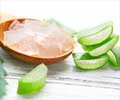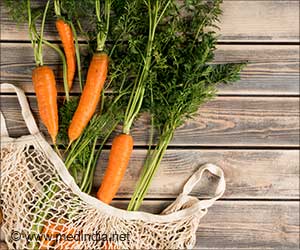Gel form of Aloe vera extract is known for its therapeutic effect on burned or irritated skin. Looks like there is more to it than just cosmetology applications. The gel could be taken as a healthful additive to fruits and vegetables in the future.
A new form has been recently developed by researchers that can be used as an edible coating to prolong the quality and safety of fresh produce. The gel does not appear to affect food taste or appearance and shows promise as a safe, natural and environmentally-friendly alternative to conventional synthetic preservatives that are currently applied to produce after harvesting.Although a number of edible coatings have been developed to preserve food freshness, the new coating is believed to be the first to use Aloe vera according to the scientists involved in the study. The colorless Aloe gel used in this study was developed through a special processing technique that maximized the amount of active compounds in the gel. The gel can also be applied as a spray.
Common table grapes were subjected to Aloe Vera treatment and were found to have a better result when compared to untreated grape. The untreated grapes appeared to deteriorate rapidly within about 7 days, whereas the gel-coated grapes were well-preserved for up to 35 days under the same experimental conditions. The gel-treated grapes were firmer, had less weight loss and less color change than the untreated grapes, measures which correspond to higher freshness. In addition, it was found that the gel-treated grapes were generally superior in taste.
The gel works better through a combination of mechanisms. Composed mostly of polysaccharides, the gel appears to act as a natural barrier to moisture and oxygen, which can speed food deterioration. It can also enhance food safety. Aloe vera gel appears to contain various antibiotic and antifungal compounds that can potentially delay or inhibit microorganisms that are responsible for foodborne illness in humans as well as food spoilage.
The gel also offers potential environmental benefits by providing an alternative to sulfur dioxide and other synthetic food preservatives that are commonly used on produce and increasingly the target of health concerns.
Aloe vera gel has been used as a functional ingredient in some foods and beverages for years. Furthermore, the gel can be applied to other fruits and vegetables. Further testing of the gel on other types of produce is expected to come up in a big way.











